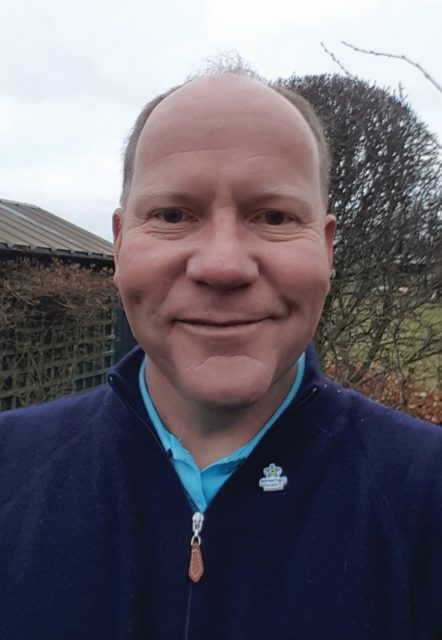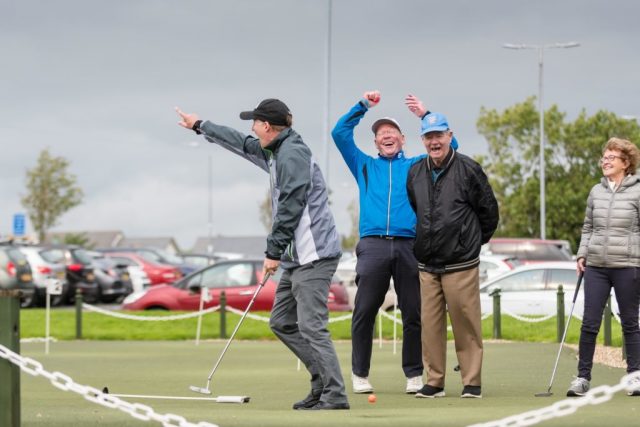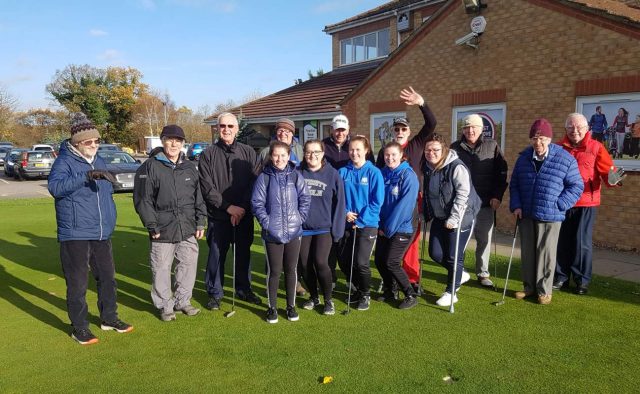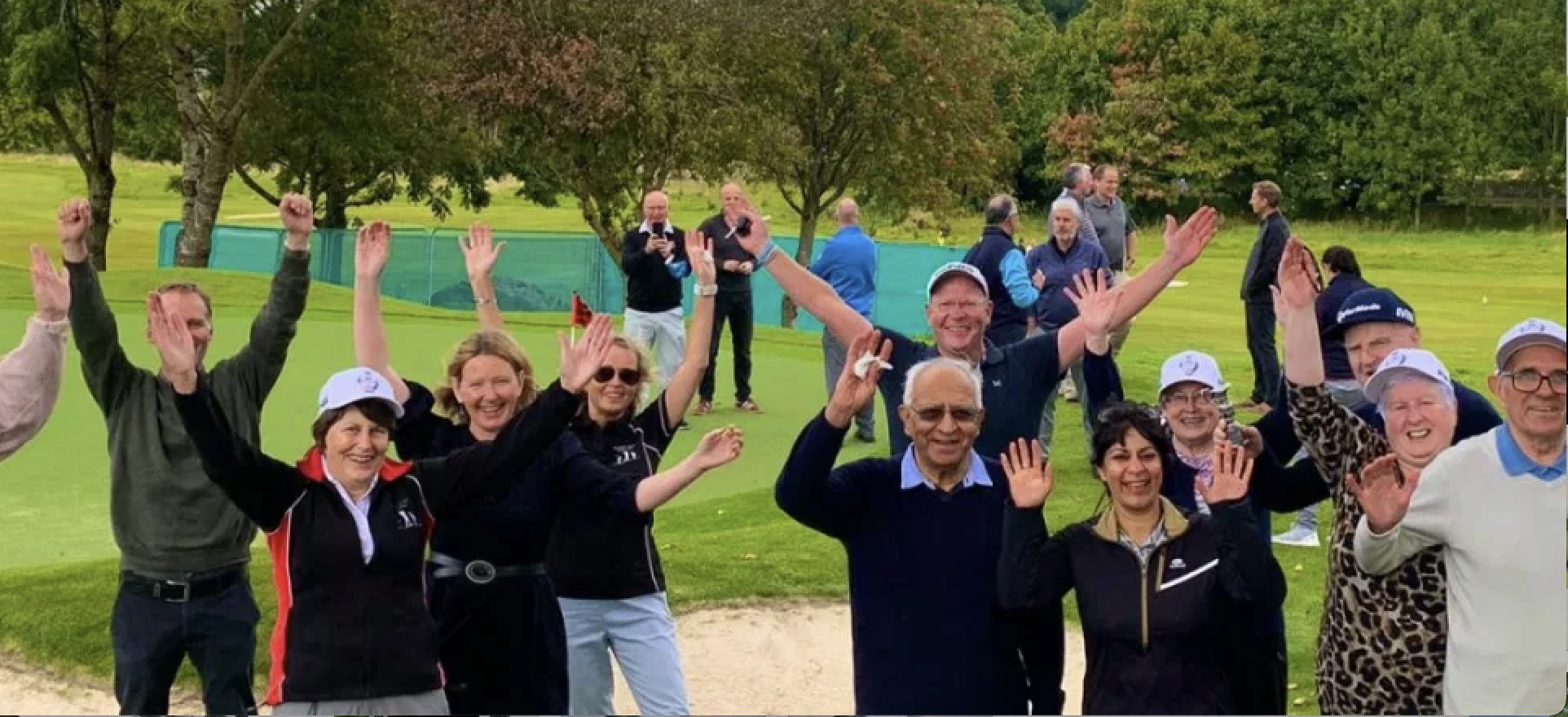
Among the many organisations whose work has suffered during the current global pandemic is Golf in Society, a social enterprise set up over two years ago to help people living with dementia and Parkinson’s, writes Andy Tremlett.
Set up by Antony Blackburn, the latest initiative during Covid-19 is a call to arms for the carers of his clients and golf clubs in general.
Obviously if one is a golfer, the concept of being under par is a thing of joy. All of us hackers would be shouting how wonderful we feel and how all our cares in the world have dissipated. However, this is not the case for 24/7 carers of people living with dementia and Parkinson’s. Being under par health-wise creeps up on you slowly mentally and eventually manifests itself almost certainly with physical health problems.
For the millions of unpaid carers in the UK this is not good for anybody, least of which, ironically, for the NHS and its army. It is estimated that as a result of Covid-19, the number of unpaid carers in the UK has risen from nine million to more than 14.5 million. Coupled with this is that many of them are receiving little or no support, as most services remain closed.

For context, the report published in late September 2020 by the Alzheimer’s Society highlights the results of a survey of over 1,000 respondents. Families and friends spent an extra 92 million hours caring for their loved ones; 95% of family carers were experiencing a negative impact on their physical or mental health; 69% reported feeling constantly exhausted; 49% feeling depressed, and 50% experiencing problems sleeping.
In addition, the recently published report on Golf & Health by the R&A, whilst highlighting the well recognised health benefits of golf for all ages, says little about the knock-on effect for those people having close proximity to golfers, especially their carers and families. Even if a golfer has had a ‘bad day at the office’, other people know they are still happier, or as several of Blackburn’s clients tell him regularly.
It has been a challenge for Blackburn to keep his golf sessions running, especially at the beginning of the pandemic when everybody was panicking. Blackburn’s approach in the short term was to bypass all these challenges by establishing home tasks and virtual get togethers to ensure Golf in Society were supplying direct support where it mattered most.
Similarly, the myriad of health organisations in the UK have been receptive to ideas to enable a semblance of normality both from diagnosis and research points of view. Golf in Society has been successful in partnering with two leading universities focused on healthy ageing. In March, the organisation was one of the first cohort of start ups to join the Wellbeing Accelerator Programmes launched by the Advanced Wellbeing Research Centre at Sheffield Hallam University. This runs in tandem with Blackburn teaming up with The National Innovation Centre for Ageing at Newcastle University on a series of pioneering golf initiatives aimed at improving health outcomes in older adults living with chronic illness.
Along with these relationships, there is a broader recognition of what Golf in Society has to offer to both the health and golf communities which is resulting in on-going discussions with our major health organisations in general, where the all-important ‘word of mouth’ factor is gaining traction.
Blackburn’s latest initiative is a pioneering scheme at golf venues under the title of ‘The Carers Resilience Programme’, which is designed to develop more support for the unsung heroes of Covid-19. With the support of the National Lottery’s COVID-19 Emergency Fund, who were prepared to support his ‘Keeping COVID Carers Healthy’ proposal, he is starting to run a series of events with golf clubs at the heart of them. They have been designed using a mix of remote and in-person sessions from feedback received. Using the research he conducted with all his attendees, the number of issues raised hinged specifically around genuine help and advice. These ranged from money issues, anger management of their charges, local respite opportunities, carers relaxation techniques and dietary help, among a long list of issues.
During these four-hour sessions of golfing activities for their loved ones, unpaid carers would be treated to a structured day of spa treatment/therapy, lunch and social, wellbeing/therapy, guest speakers and a feedback section to end with. Delivery partners for the pilots include Rudding Park, Home Instead, Parkinsons UK, Dementia Forward and Sunrise Care, as well as numerous experts in the fields of nutrition, wellbeing, cognition and the law.
“If successful, my vision is to see these resilience events adopted more widely across the UK,” says Blackburn. “If we don’t take care of the carers, then the already huge problems we are facing in adult social care will certainly escalate further. I have to do something about this for my clientele.”
Golf in Society proves every day that golf venues have an important part to play in supporting carers and people diagnosed with chronic illness and how the clubs can further become an integral part of local communities.
For more information, visit www.golfinsociety.com.
To watch a video of Antony Blackburn being interviewed about Golf in Society, click here.




